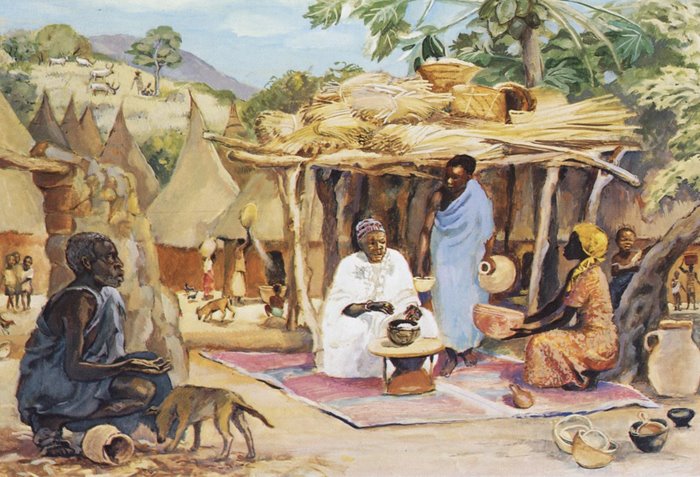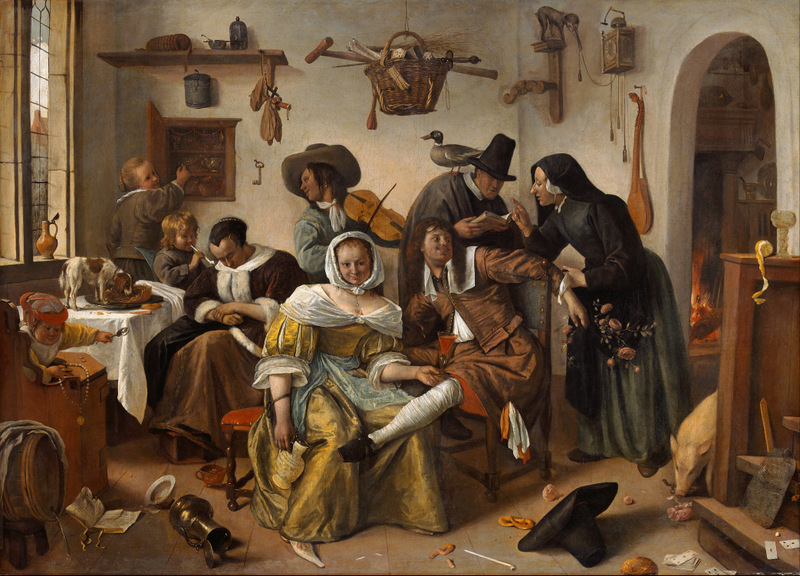Scripture: Luke 16:19-31

Recently in the news and on social media there has been a lot of attention being given to Mother Teresa.
On September 4th, Pope Francis celebrated the Canonization of Mother Teresa and declared her Saint Teresa of Calcutta. Both before and after the Pope’s declaration there was a slew of media coverage and online debate about Mother Teresa’ worthiness to be a saint, and whether or not she deserved to be venerated. Mother Teresa, as many remember, founded the Missionaries of Charity, an order of nuns, in 1950, with the express purpose of living with and offering ‘wholehearted free service to the poorest of the poor.’ Care and service provided by the Missionaries of Charity include homes for people dying of HIV/AIDS, tuberculosis, orphanages and soup kitchens – in the poorest neighbourhoods and regions across the globe. Mother Teresa and her order were criticised however for offering sub-standard care and some have gone so far as accusing Mother Teresa of glorifying poverty as a means of the poor to suffer like Christ on the Cross: critiques that any supporter or admirer of Mother Teresa must at least grapple with. While I do not begin to know enough about Mother Teresa, or about the critiques and criticisms offered about her spirituality and effectiveness, one thing is for certain she had no trouble ‘seeing the poor’ and acting upon what she saw, the best way she saw fit, as flawed or broken as that may have been.
If we are honest with ourselves we must admit that seeing the poor and poverty, even here in Toronto – let alone in far flung regions of the world – can be challenging at the best of times. How many of us try to avoid the person asking for change on the sidewalk, or wave away the man or woman who approaches our car with cup in hand? As a church, both locally and globally, we are no better. How have we as a church sought out and attempted to see the poor and the poverty of our communities? How often have churches been content with serving their own needs, on lavishly feasting on the riches of God’s grace, while others go hungry, while others sit at the gate begging for table scraps? How often have churches, have we as a community been unaware of the people right around us, the people who are isolated, in need, malnourished, lost, crippled by debilitating debt or lack of income? Do we as Grace Church, truly ‘see the poor’ of our community and act upon it?
Seeing the ‘poor’ and acting upon it is at the heart of our Gospel parable today and it follows from last week’s parable where we explored how we are called to act shrewdly in currying favour with our neighbours, here at Grace Church in Scarborough. And so let us remind ourselves what we heard today:
The Parable of Abraham and Lazarus

This parable has been traditionally thought of as an example story: as a parable which gives us an example to follow by contrasting two different ways of doing things – however this isn’t all too helpful and is inappropriate because neither the story gives us very little about the actions of either the rich man or Lazarus to provide a an indication of what we should do. The only thing we might say about this parable is that one way or another the rich man serves as a negative example, but even that is not plainly obvious or laid out for us in the story.
This parable is only understandable when we take it in context with the parable that precedes it (the dishonest steward) and Jesus’ judgement of the Pharisees, who Luke describes as ‘lovers of money’ in chapter 16, verse 14. Our parable today doesn’t provide us with a snapshot of heaven and hell, it doesn’t even teach us specifically about life in God’s kingdom, but rather it serves as a warning to us and tells us about the priorities of God’s kingdom. Ultimately, this parable is about what is important to God, about the priorities God keeps – first and foremost the prime place that the poor have in God’s eyes. The parable serves to remind us that being with people, particularly the poor is far more important than all the wealth of the world.
The rich man in the parable has received his reward on earth, he was able to live lavishly – and despite his clearly abundant wealth he did nothing to share it with the poor man who begged outside his gate on a daily basis. The rich man did nothing for him, a man who Jesus describes as wanting nothing more than to satisfy his hunger with the wasted scraps of food that fell from the rich man’s table.
And the fact of the matter that this poor man in Jesus’ parable is not just a faceless man with no name, no instead Jesus clearly identifies him with the name Lazarus, short form of Eliezer, which means, ‘My God is Help’. This is the only parable of Jesus where one of the characters is given a name (think of the Good Samaritan or the Prodigal Son), and the very act of naming the poor man – intensifies the point that the poor are not faceless people with no stories, they are not things or problems that we need to address so they can go away, they are not agendas to make us feel better about ourselves or more accomplished – no the poor, the people we are called to see and be with – are people; people with real names, real stories, real identities.
In fact the sin of the rich man, the reason he is in agony is because he did in fact see the poor man, he saw Lazarus and actively ignored the plight of his neighbour, actively ignored the person who lay just outside his door. The rich man had to have known Lazarus, because when he is Hades and in agony – he sees the poor man and recognizes him, he sees the poor man and calls out to Abraham, asking for Lazarus by name. So not only has the rich man seen Lazarus, he knows enough about him to know his name. And even as he lies in Hades writhing in agony, the rich man has learned nothing – he does not acknowledge Lazarus directly, he does not seek his mercy and grace but rather goes to Abraham to have Lazarus serve him. The rich man had seen the poor, and actively decided to ignore and avoid anything that might have threatened his own way of life.

This parable doesn’t just serve as a warning to spur us to action but it also serves to remind us the very character of God. When the rich man pleads with Abraham to send Lazarus back from the dead, to serve as a warning to correct the sinful ways of his five brothers Abraham’s response is that they have Moses and the Prophets – they have the Holy Scriptures to guide them in the way they should act towards the poor, oppressed and marginalized. Jesus is clear that the Holy Scriptures (for us the Old Testament), clearly demonstrate God’s concern and care for the poor and marginalized. Throughout the Old Testament, Israel is consistently taught to care for the poor – it is at the heart of the laws laid out for Israel in the books of Leviticus and Deuteronomy – and consistently Israel fails and the prophets admonish them and challenge them to return to covenantal faithfulness.
God cares for the poor, the marginalized, the alien, the outcast – that is clear from any continuous reading of Scripture – and God wants his church to care and be with the poor. We at Grace Church need to think seriously about how we, as a church, are with the poor and marginalized of our neighbourhood; we as church need to seriously think about how we extend the care of God to those in need right here all around us. We, as a church, might not be as lavishly wealthy as the rich man in the parable, but we do have riches to share: riches made up of the time each of us have to offer, riches made up of the talents each of us have to offer, riches made up of the treasure that each of us has to offer.
Over the last five years, we have been doing the hard and bumpy work of coming together as a community, but now is the time for us to open our eyes to our neighbours all around us – to our neighbours who are hungry, our neighbours who are isolated, are neighbours who are in debt, our neighbours who are out of work. We cannot ignore the poor and the marginalized in our community any longer, as a church, as a community made up of all of us people gathered here, must open our eyes and see, we must take action to be with our neighbours, we must take action to care for our neighbours.
We need to increase the way we as a Church engage with our community and to do so we need more resources. We need more people to come out and support the good work we are already doing and to support the new ministries and initiatives we will dream up to be with and care for our neighbours. We need more people to offer their gifts and abilities, their talents so that we might be with and care for our neighbours. We need all of us to reach down and give a little bit more of our money, we need to sacrifice just a little bit more so that we might be able to support the ministries and initiatives we are undertaking. Each of us has a role to play, none of us can sit back any longer, because God’s call to us as a Church is to be with our neighbours, to be with the poor, to care for the community around us.
And the Good News is that God has given us more than we can ask and imagine right here in these four walls. The Good news is that together we have more than enough people, more than enough talent and ability, more than enough money – to do the simple yet difficult work of being with and caring for our neighbours. The Good News is that in Jesus, in his death and resurrection, we have been granted abundant life, abundant life that we are called to share with our neighbours. The Good News is that God has given us the Holy Spirit; that God has gathered us as a community to support and uphold one another; that God has given us gifts and abilities to be heralds of his kingdom.
Let us not shut our eyes to our neighbours at our doorstep; let us not ignore and avoid the poor and downtrodden who live in our community; Let us instead, each and every one of us, embrace our call to be God’s Church here in South Scarborough, let us embrace our call to be with the poor and our neighbours. Let us do so, knowing that when we do we will see the face of God; that when we do, our worship of God will be perfected so that we might come to taste a little more of the abundant life that God offers to his children.
Let us pray.
